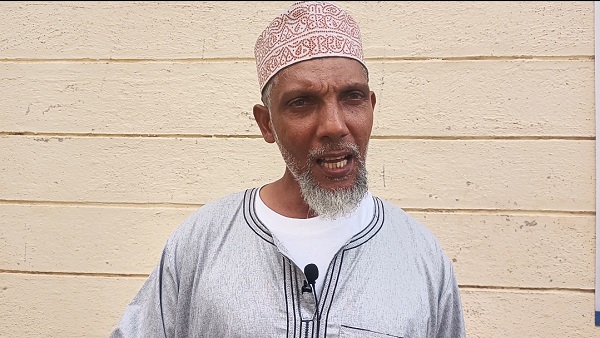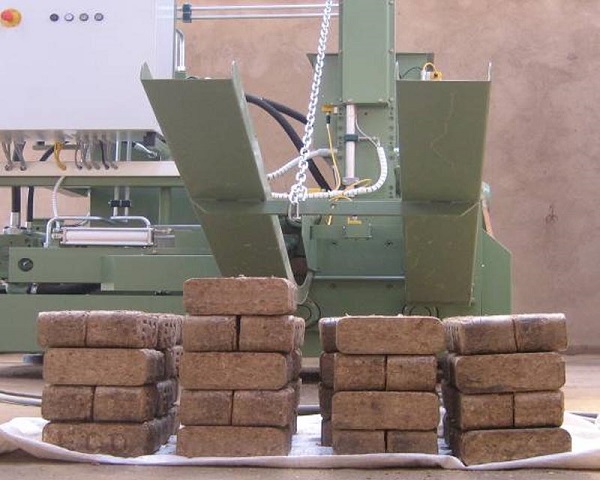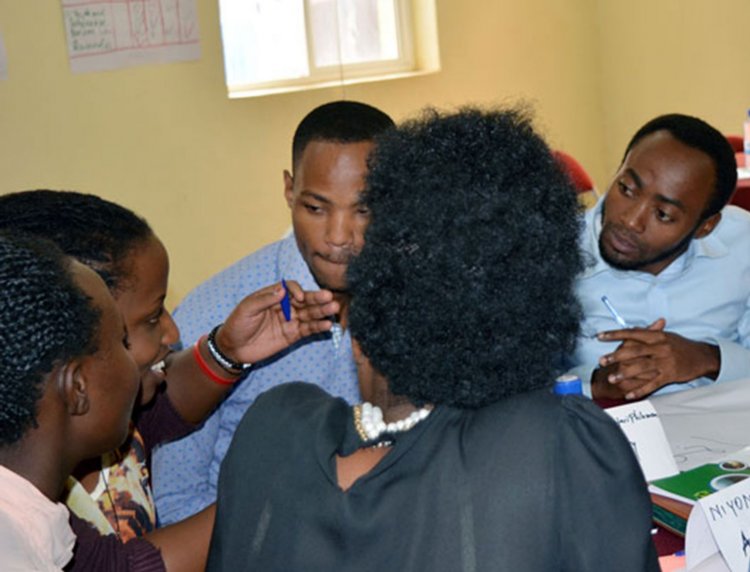Despite dominant stories of inaction on the worsening garbage disposal crisis across Africa’s fast expanding cities, coupled with the health and environmental dangers linked to pollution, all is not bleak.
There is a rise in the number of initiatives and innovative ideas by individuals or communities that promise to tame the crisis, but whether Governments create a conducive environment to allow scale up, or do the requisites to promote transition to circularity still divides opinions.
Entrepreneurs in the circular space across parts of Africa have been recycling or reusing a wide range of garbage into other products, from transforming food waste into pellets that serve as a substitute to wood and charcoal, to turning plastics and worn out clothes into reusable products at households and across sectors.
Others have dedicated their efforts towards cleaning up water bodies, among other social environmental activities.
Their collective work promises to minimize volumes of waste that end up at landfills and other locations in rural and urban parts of the continent where poor disposal foments pollution responsible for estimated 1.2 million deaths annually, according to World Health Organisation.
Also read: Plastics are in the fish you eat; Lobby groups now push for regional ban
It has emerged, however, that gains attained as a result of their work, as well as their potential to scale operations could be lost as most continue to grapple with little to no incentives or funding, not even from the waste management departments of governments and other public agencies whose mandate is to deliver a livable environment to the citizens.
Their plight did not change in spite of calls on Governments to expedite work on unmet commitments under the Sustainable Development Goals (SDGs) especially with regard to the aspect of preventing waste pollution.
Challenging
“It’s been extremely challenging raising funding beyond normal bank loans and that weighs down our efforts because interest rates are so high and there is no consideration given to the social and environmental impact aspect,” said Paulin Buregeya, head of COPED, a Kigali-based waste company.
“You cannot even mention the circular economy. It has to be a business that generates income for you to secure a loan, and that has acted as a setback for social environmental initiatives by individuals, women groups, youth and other associations that had entered waste recycling at grassroots level,” he added.
Lack of support implies that these entrepreneurs struggle daily to meet costs associated with routine collection, sorting and transportation of the garbage that range from paper, plastic, metals and organic materials for recycling, on top of other bills.
These issues were cited in the collapse of Pivot Works and Amizero, two Kigali based firms which worked to convert faecal matter into solid fuel and recycled biodegradable garbage to produce pellets respectively. Their plight also partly had to do with inefficient waste disposal systems which made access to recyclable materials almost impossible.
Mr. Buregeya kept going largely because his firm is equally involved in the municipal waste collection and transportation business, and that makes it possible to pick valuable materials right from households and institutional customers for recycling without having to incur costs associated with sorting at the central landfill where solid waste are dumped unsorted.
He now pins hopes on the government of Rwanda’s green investment facility introduced a few months ago, allowing entrepreneurs in circular economy to access funding in terms of both grants and low interest financing to scale up.
Not alone
Flipflopi, Kenya-based East African movement working to end plastic pollution operated for six years without funding to support their activities around collection of the plastic garbage in water bodies across the region, operationalizing the recycling facility, as well as meeting others expenses like utility bills and paying workers.
The project is credited for riding East Africa’s water bodies off tonnes of discarded plastic waste that they turn into sailboats and other products as part of campaigns to inspire communities to embrace circularity.
“We’ve been running this project for almost six years without any funding. Sometimes we opted for crowdfunding or asking for donations especially in our clean up campaigns. We ask the people in the area where we are cleaning up what they can contribute… can you bring a rake, a basket, can you bring your workers to help us?” said Ali Skanda, co-founder and general manager.

Mr. Skanda and his co-founders breathed a sigh of relief when their initiative received funding from the Sustainable Manufacturing and Environmental Pollution (SMEP) Programme, allowing them to turn the aspiration of the big boat into reality, and since went ahead to build smaller sailboats and carried out regular waste collections.
“There’s so many more organizations out there in Nairobi, and the whole of Africa has an enormous amount of these kind of projects struggling to scratch funding together. Collectively, they would change a lot if they got predictable government support. Even for us fundraising is still a full time job because the SMEP funding officially end in April next year,” said Katharina Elleke, Flipflopi’s program manager.
Holding manufacturers to account
Circular economy industry players who converged for the annual Circular Economy conference in Nairobi this year called on governments across Africa to consider these constraints in their design of circular economy action plans and roadmaps, and specifically the consideration of tax incentives, subsidies and green procurement policies that can create a conducive environment for initiatives that promote circularity.
Also read: Experts weigh in on ways to make zero-waste economy work
In particular, there are high hopes in the the countries’ move to draft legislations with regard to Extended Producer Responsibility (EPR) to compel producers to support work that goes into dealing with their products after use. Countries like Kenya has moved to implement EPR. Rwanda is understood to be drafting similar legislations mainly prioritising the packaging industry and the electronics value chain.
Margaret Kamau who works at African Development Bank’s Climate Change and Green Growth Division says that these individual countries’ efforts will be complemented by the Bank’s business support programme for startups in circular economy which seeks to address challenges around developing bankable ventures that attracts capital for early stage financing to support their further scale up.
She said that the financial institutions still treat circular startups like other business firms when it comes to weighing credit risks, and the former barely understand the circular economy models.
Their plight is worsened by limited commercialization of circular products and are consequently more expensive than linear ones.
“Financing is the main challenge of many circular startups and new businesses, but there is also need to strengthen market demand for circular economy products,” she said.
Meanwhile, authorities at national environmental regulatory agencies in both Kenya and Rwanda contacted by this publication shared that entrepreneurs with innovative circular models could come together and be supported to approach potential financiers.










